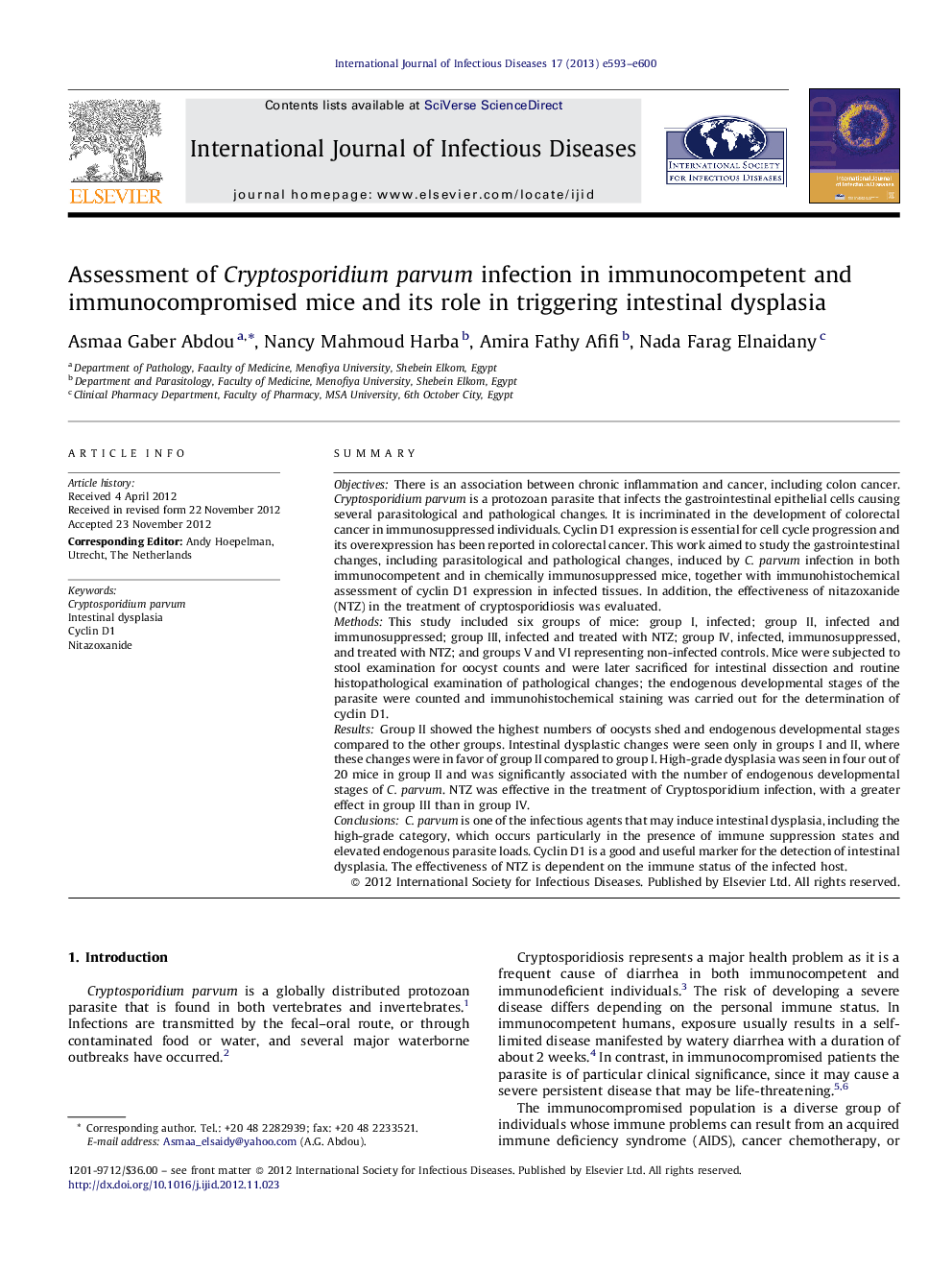| Article ID | Journal | Published Year | Pages | File Type |
|---|---|---|---|---|
| 3362787 | International Journal of Infectious Diseases | 2013 | 8 Pages |
SummaryObjectivesThere is an association between chronic inflammation and cancer, including colon cancer. Cryptosporidium parvum is a protozoan parasite that infects the gastrointestinal epithelial cells causing several parasitological and pathological changes. It is incriminated in the development of colorectal cancer in immunosuppressed individuals. Cyclin D1 expression is essential for cell cycle progression and its overexpression has been reported in colorectal cancer. This work aimed to study the gastrointestinal changes, including parasitological and pathological changes, induced by C. parvum infection in both immunocompetent and in chemically immunosuppressed mice, together with immunohistochemical assessment of cyclin D1 expression in infected tissues. In addition, the effectiveness of nitazoxanide (NTZ) in the treatment of cryptosporidiosis was evaluated.MethodsThis study included six groups of mice: group I, infected; group II, infected and immunosuppressed; group III, infected and treated with NTZ; group IV, infected, immunosuppressed, and treated with NTZ; and groups V and VI representing non-infected controls. Mice were subjected to stool examination for oocyst counts and were later sacrificed for intestinal dissection and routine histopathological examination of pathological changes; the endogenous developmental stages of the parasite were counted and immunohistochemical staining was carried out for the determination of cyclin D1.ResultsGroup II showed the highest numbers of oocysts shed and endogenous developmental stages compared to the other groups. Intestinal dysplastic changes were seen only in groups I and II, where these changes were in favor of group II compared to group I. High-grade dysplasia was seen in four out of 20 mice in group II and was significantly associated with the number of endogenous developmental stages of C. parvum. NTZ was effective in the treatment of Cryptosporidium infection, with a greater effect in group III than in group IV.ConclusionsC. parvum is one of the infectious agents that may induce intestinal dysplasia, including the high-grade category, which occurs particularly in the presence of immune suppression states and elevated endogenous parasite loads. Cyclin D1 is a good and useful marker for the detection of intestinal dysplasia. The effectiveness of NTZ is dependent on the immune status of the infected host.
